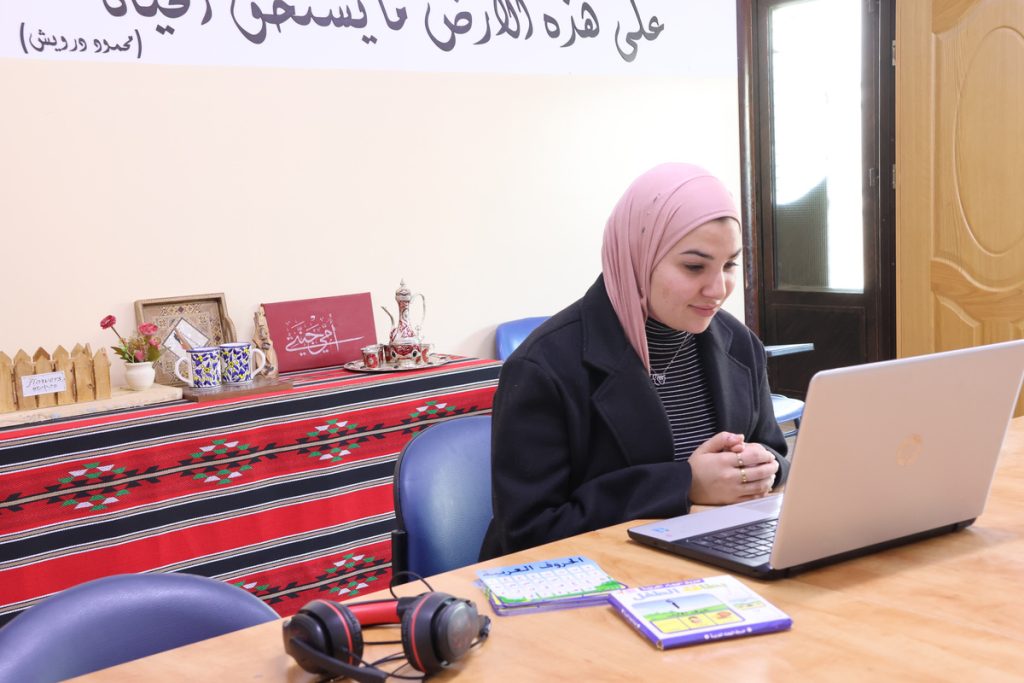Egyptian Arabic: Arabic is the official language of Egypt, and the most widely spoken variety is known as Egyptian Arabic, or Masri (مَصرِيّ). Egyptian Arabic is the dialect Egyptians use daily—at home, at work, in markets, and in social settings. While Modern Standard Arabic (MSA) is used in formal writing, education, news media, and official documents, Egyptian Arabic is the informal, native tongue spoken across the country.
This dialect has developed its unique pronunciation, vocabulary, and expressions, setting it apart from MSA and other regional Arabic dialects. Thanks to Egypt’s influential film, television, and music industries, Egyptian Arabic is one of the most widely understood dialects in the Arab world, making it a practical and popular choice for learners interested in communication and culture.
Table of Contents
Important Facts About Egyptian Arabic
| Category | Details |
|---|---|
| Name | Egyptian Arabic (اللهجة المصرية – al-Lahja al-Maṣriyya) |
| Also Known As | Masri (مَصرِيّ) |
| Language Family | Semitic → Central Semitic → Arabic → Colloquial Arabic |
| Region Spoken | Egypt (widely spoken across the country) |
| Number of Speakers | Over 100 million |
| Status | Rarely written, MSA is used for writing and formal settings |
| Relation to MSA | Shares grammar and vocabulary, but simpler structure; used mainly in speech |
| Influences | Coptic, Turkish, French, English |
| Written Form | Rarely written; MSA is used for writing and formal settings |
| Media Use | Common in Egyptian TV, film, music, and pop culture |
| Mutual Intelligibility | Generally understood across the Arab world due to Egypt’s media influence |
Who Speaks Egyptian Arabic?
Egyptian Arabic is the first language of over 100 million Egyptians. As Egypt is the most populous country in the Arab world, its Arabic is the most widely spoken dialect.
Egyptian Arabic is understood by almost 300+ million Arabic speakers worldwide, thanks to the Egyptian cinema and media industry. It is spoken primarily in Egypt, but is listened to across many countries.
How is it Different From Modern Standard Arabic (Classical Arabic)?
Modern Standard Arabic (MSA) is the formal literary language used in writing and official communication across all Arabic-speaking countries. It is based on Classical Arabic—the language of the Qur’an and early Islamic literature—and is widely used in media, education, government, and literature.
Egyptian Arabic, the everyday spoken dialect in Egypt, shares many features with Modern Standard Arabic but has also been shaped by the country’s rich history and diverse cultural influences. These include Coptic, the language of ancient and pre-Islamic Egypt, which is still used in some Christian religious practices, as well as Turkish, due to centuries under Ottoman rule, and more recently French and English, through colonization and globalization. This blend gives Egyptian Arabic its unique character, making it both distinct and widely understood across the Arab world.
Linguistic Features of Egyptian Arabic
Vocabulary in Egyptian Arabic is mostly based on standard Arabic, but also borrows words from Coptic, Turkish, French, and English. Examples:
- ‘Ah’ = ‘yes’ (origin: Coptic)
- ‘ōda’ = ‘room’ (origin: Turkish)
- ‘asansir’ = ‘elevator’ (origin: French)
- ‘yisantar’ = ‘to center (something)’ (origin: English)
Sounds differ in some cases from MSA. One of the most distinctive features of the dialect is the use of the sound g (as in ‘gum’) for the letter ج instead of the sound j (as in ‘jam’). In phonetics, ɡ – a voiced velar stop, is used instead of j – a palato-aveolar fricative. This is used in the Arabic of Cairo and Alexandria, but not in southern Egypt.
Another example would be that a glottal stop (the hamza in Arabic, written ء), is used instead of a ق (the qaf in Arabic, which is a ‘k’ pronounced further back in the mouth… in phonetics, a uvular).
How Can I Learn Egyptian Arabic?
Egyptian Arabic online and in-person courses are excellent starting points for anyone seeking their first exposure to the dialect. Several other valuable resources and programs support learners at all levels, whether through structured courses, online platforms, or immersive in-person experiences.
Here are a few recommended sources for learning Egyptian Arabic:
1. Study Arabic Online Courses
Study Arabic Online offers courses in Levantine Arabic (Ammiyya or Shami Arabic), which includes Palestinian, Jordanian, Syrian, Lebanese, and Egyptian dialects, as well as Modern Standard Arabic. Our programs are designed for beginners and focus on practical conversation and everyday vocabulary, making learning Arabic from the comfort of your home or workplace easy. Ready to learn Arabic? Join our engaging online lessons taught by experienced instructors from Palestine, Jordan, Lebanon, Egypt, and Syria. Whether you’re a student, a professional, or just passionate about Arabic, our classes are designed for everyone. You’ll learn to speak Arabic confidently and connect with people from Arabic-speaking countries.
2. The Excellence Center in Europe
The Excellence Center in Europe provides various Arabic language programs for individuals eager to learn Arabic while immersing themselves in Europe’s rich cultural diversity. Whether you’re a student aiming to strengthen your language skills, a professional seeking to enhance cross-cultural communication, or a language enthusiast exploring Arabic dialects, our programs offer an immersive and engaging learning experience.
3. Study Arabic World
Study Arabic World offers a range of intensive programs designed to immerse you in the rich linguistic tapestry of the Arabic language. Our courses cover Palestinian, Jordanian, Syrian, Lebanese, and Egyptian Arabic dialects, along with Modern Standard Arabic. Crafted specifically for those with little to no Arabic proficiency, our programs aim to foster meaningful connections within local communities. Emphasizing practical conversations and everyday vocabulary, our curriculum facilitates easy and effective Arabic language learning, all from the comfort of your home or workplace.
4. Study Egyptian Arabic Online

Study Egyptian Arabic Online: Study Arabic Online offers a comprehensive range of intensive and non-intensive Egyptian colloquial online Arabic courses. Beginning with the Starter Course and working through to the Advanced. The online Arabic lessons offered by Study Arabic Online are as diverse and far-reaching as Arabic culture itself.
A well-rounded approach to learning Egyptian Arabic combines listening, speaking, reading, and cultural immersion. Consider the following strategies:
- Watch Egyptian TV shows and films with subtitles to familiarize yourself with pronunciation and expressions.
- Use audio-based language apps or YouTube channels dedicated to Egyptian Arabic.
- Engage in language exchange with native speakers via platforms like Tandem or HelloTalk.
- Take live classes (online or in-person) to get personalized instruction and practice speaking.
- Supplement with grammar books or phrasebooks focused on Egyptian Arabic.
What are Some Common Egyptian Arabic Expressions?
| English | Transliteration | Arabic |
|---|---|---|
| Good morning | SabaaH il-kheer | صباح الخير |
| Good evening | masaa’ il-kheer | مساء الخير |
| How are you? (spoken to male) | izzaayak? | إزَّايَك؟ |
| How are you? (spoken to female) | izzaayik? | إِزَّايِك؟ |
| How are you? (spoken to group) | izzaayuuku? | إِزَّايُوكُو؟ |
| Fine (male) | kwayyis | كوَايِّس |
| Fine (female) | kwayyesa | كوَايِّسَة |
| Fine (group) | kwayyiseen | كوَايِّسِين |
| Thank you | shukran | شُكْراً |
| You’re welcome | 3afwan | عَفْواً/td> |
| Yes | aiwa | أَيْوَه |
| No | laa | لَا |
| God willing | in shaa’ Allah | إِنْ شَاء الله |
| Praise to God | al-Hamdu lilleh | الحَمْدُ لِله |
| What’s your name? (spoken to male) | ismak eeh? | اِسْمَك إِيهْ؟ |
| What’s your name? (spoken to female) | ismik eeh? | اِسْمِك إِيهْ؟ |
| My name is… | ismii…. | اِسْمِي … |
Conclusion
Egyptian Arabic is not only the spoken language of over 100 million people but also a gateway to understanding one of the most culturally rich and historically significant regions in the Arab world. Its widespread use in media, music, and daily conversation makes it an accessible and practical choice for Arabic learners.
Whether you’re interested in travel, cultural exploration, or regional communication, learning Egyptian Arabic offers a rewarding experience that bridges language and culture. With the right resources and a commitment to practice, anyone can begin to understand and speak this vibrant and expressive dialect.
